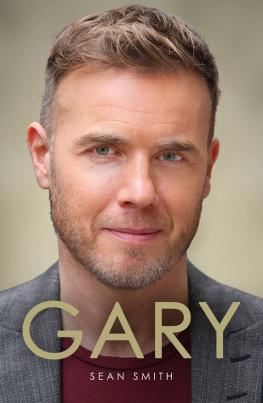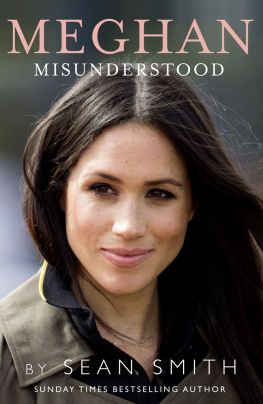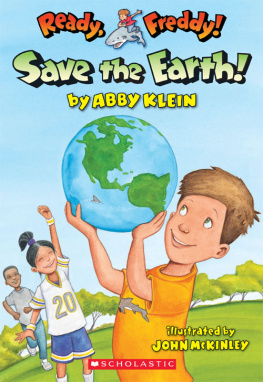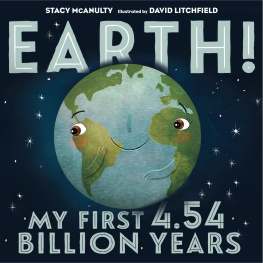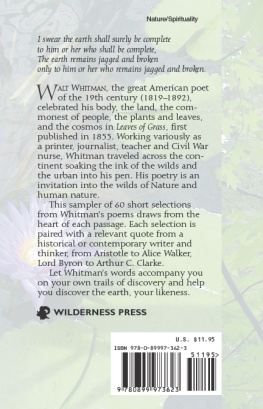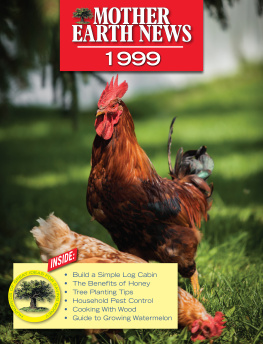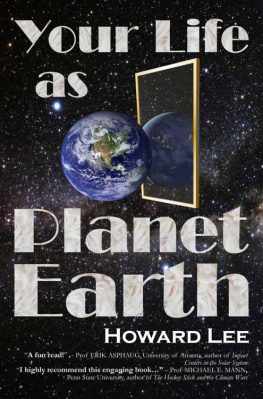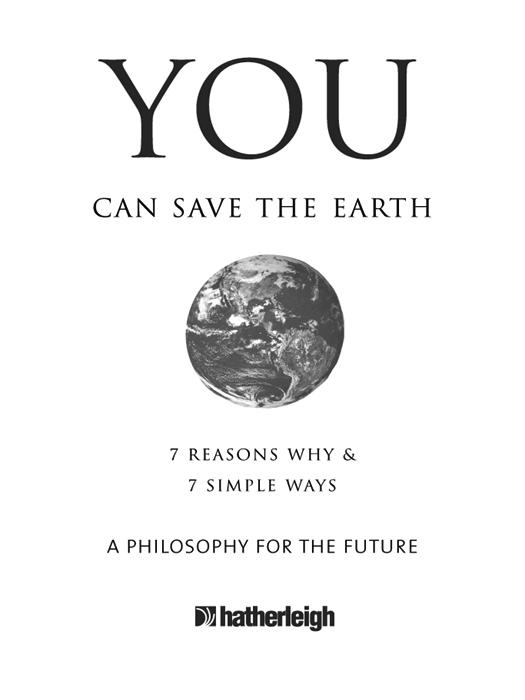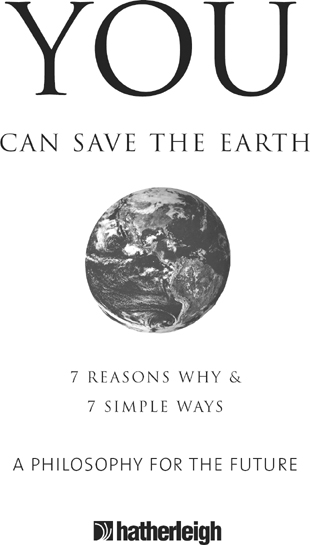Mankind has long endeavored to reach out to the heavens. We have set foot on the moon, launched probes into the vast depths of space, pondered dwellings in zero gravity. Yet, perhaps all this effort and investment was spent not to find a new home, but rather to turn the cameras around and capture a photo of our Earth. Beautiful, fragile, alive. A solitary Ark carrying us forward through time.
We are at a watershed moment in the history of our world, when we must make the changes required to embrace a sustainable future. The good news is that its a choice we are free to make, and we should do so with a spirit of optimism.
Consider You Can Save the Earth a gift of hope and an enduring message to help safeguard the Earth, its environments, and each other.
Andrew Flach, Publisher
CONTENTS
The divine is not something high above us. It is in heaven, it is in earth, it is inside us.
M ORIHEI U ESHIBA

YOU
CAN SAVE THE EARTH
T his book is about how you can save the Earth.
The threat to Earths environment isnt new. But it is more pressing than it has ever been. There is no doubt that our way of living is causing the Earth tremendous damage. This is damage we must stopfor ourselves, and for the generations that will come after us.
However, this book does not contain photographs of polluted skies or trees stripped bare by acid rain or of overflowing landfills. Certainly, you have seen enough of those images.
And if those photos havent already motivated you, then they never will.
Instead of terrifying you, this book is going to empower you.
Begin by understanding how our lifestyle is affecting the Earth we inhabit. Then, think about why you value clear skies, safe water, and a bountiful natural landscape. Suddenly, your own motivation will become clear to you. Once you are ready to act, learn about steps you can take that will truly make a difference for the Earth, and for all of us.
You can save the Earth.
Conservation is a state of
harmony between men and
land harmony with land
is like harmony with a friend;
you cannot cherish his right
hand and chop off his left.
A LDO L EOPOLD

We, the people, are going to have to put our thoughts together, our power together, to save our planet here. Weve only got one water, one air, one Mother Earth.
C ORBIN H ARNEY

7 REASONS WHY
The love of wilderness is more than a hunger for what is always beyond reach; it is also an expression of loyalty to the earth, the earth which bore us and sustains us, the only paradise we shall ever know, the only paradise we ever need wilderness is not a luxury but a necessity of the human spirit, as vital to our lives as water and good bread.
E DWARD A BBEY

YOU
CAN SAVE THE EARTH
H ow is the way we live now affecting the Earth? Its important to understand why our means of transportation, the way we eat, and the energy we consume are changing our environment, so we can protect our planetour one and only home.
As you learn more about the effect of our habits on the Earth, think about why a healthy environment is important to you. Remind yourself how much you value clean air, clear water, litterfree beaches, fresh food and unspoiled open spaces. Arent these part of what makes life worth living?
Find your own motivation to guard a healthy Earth. Maybe its because you love to fly fish in sparkling streams. Maybe youre fond of morning bike rides or walking your dog through the woods. Let your own personal experiences guide you.
Listen to your own voiceyour own consciencewhen you hear more about the state of the environment around the globe.
All that we did, all that we
said or sang must come from
contact with the soil.
W ILLIAM B UTLER Y EATS

If, as the elders have told us, we are our grandparents dream, then we must today begin dreaming of our grandchildren.
W ALTER B RESETTE


ALL OF LIFE IS INTERCONNECTED
Climate change can affect human health directly (e.g., impacts of thermal stress, death/injury in floods and storms) and indirectly through changes in the ranges of disease vectors (e.g., mosquitoes), waterborne pathogens, water quality, air quality, and food availability and quality.
W ORLD H EALTH O RGANIZATION

A LL OF LIFE on Earth is connected.
A seed needs soil, sun, and water to grow into a vegetable. The vegetable provides our bodies with the energy needed to function and thrive.
We must guard this precious cycle of life by protecting every element at each stage of growth. For, if one step is compromised, we are all at risk.
Here is an example: in April 2006, a toxic cloud of pollution wafted from Northern China, across the Pacific Ocean, to the West Coast of the United States. Meteorologists reported finding residue from this toxic cloud atop mountains in California, Oregon, and Washington. When the quality of the air is compromised somewhere in the world, we all pay the price. The Earth does not pay attention to borders or nationalities. This means our neighbors environmental disasters are also ours.
There are two principles inherent in the very nature of things, recurring in some particular embodiments whatever field we explorethe spirit of change, and the spirit of conservation. There can be nothing real without both. Mere change without conservation is a passage from nothing to nothing.
A LFRED N ORTH W HITEHEAD

In the United States, 6 billion pounds of phosphorus and nitrogen fertilizers from Midwestern farms leach into the Mississippi and its tributaries every year, causing massive algae blooms. Bacteria consume the algae, depleting the oxygen in the water and literally suffocating all marine life. Then, this toxic soup flows down to the mouth of the Mississippi and into the Gulf of Mexico, where it has created a dead zone that now measures almost 7,500 square miles, an area nearly the size of New Jersey. American farm runoff has become an international environmental hazard.
All of life on Earth is connected by actions across time. Our choices today shape the world that our children and grandchildren will inherit. Our descendants rely on us all to preserve our only home and leave it for them in better shape than we found it.


